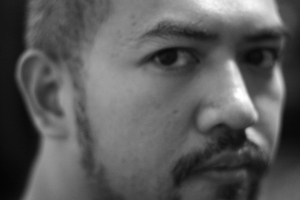Bio

KHAVN (1973, Mondomanila, Philippines) is a prolific, eclectic filmmaker, writer, and composer.
He has directed 203 films — 52 features and 151 short films, including ORPHEA (Berlinale 2020), HAPPY LAMENTO (Venice 2018), ALIPATO (Rotterdam 2017), RUINED HEART, starring Tadanobu Asano and shot by Christopher Doyle; and BALANGIGA: HOWLING WILDERNESS, Best Picture winner at both Famas (Philippine Oscars) and Urian (Philippine Critics Circle). Khavn has served in the jury of film festivals such as the Berlinale, Clermont-Ferrand, CPH:DOX, Jeonju, Bucheon, Jihlava, New Horizons, & Dok Leipzig. He has exhibited at the MoMA, MAXXI, Guggenheim Museum, Tate Modern, National Museum of Singapore, & Venice Architecture Biennale; lectured at the Berlinale Talent Campus, Bela Tarr’s Film Factory, Goethe Institut, & the Danish Film Institute; and curated programs for the Viennale, the Edinburgh International Film Festival, & the Sharjah Biennial. Selected retrospectives of Khavn’s films have been presented in Rotterdam, Pesaro, Kosovo, Sao Paulo, Taiwan, Croatia, & Oberhausen, among others.
Khavn has written eight books of poetry, two short story collections, a novel, and a reference book about the Philippine No Wave film movement. He has won twice in the Don Carlos Palanca Memorial Awards for Literature, the most prestigious literary contest in the Philippines. He edited Under The Storm, an anthology of contemporary Philippine poetry. As publisher, he has released Planet Of The Noses, the cult graphic novel by Roxlee, and Mondomanila, the prize-winning novel by Norman Wilwayco.
Khavn has recorded forty albums and has been awarded Best Music at the Urian and Best Original Song at the Famas. Like his films and books, his music is characterized by ferocious artistic restlessness expressed through the blurring of conventions, resisting labels while also invoking them, making his whole body of work wildly divergent but also singular in vision.
“Enfant terrible of Philippine Cinema.” — Pesaro International Film Festival
“Che Guevarra of the Digital Revolution.” — La Palma International Film Festival
"The Philippines' answer to the Dogma manifesto.” — Singapore International Film Festival
“A real discovery. The Lars von Trier of the Philippines.” — Festival du Nouveau Cinema de Montreal
“The Philippine counterpart of Peter Baiestorf. The new Takashi Miike.” — Mondo Paura
"Jarring, deliberately offensive images. A rock 'n' roll filmmaker with the sensibilities of Bunuel.” — GMA News
“The wild, funny, subversive no-budget videos of the Philippine punk rebel Khavn is a discovery.” — Die Presse
“Pushes tools to the edge of physical sustainability: film as an instrument of formal and mental destruction.” — Jihlava International Documentary Film Festival
“I saw wunderkind Khavn ́s MONDOMANILA: a gonzo Kenneth Anger-esque social burlesque which manages to be deeply morally serious.” — Sight & Sound
"Very likely the world’s most prolific major filmmaker, tethered to no genre or tradition except his own commitment to radical cinema’s capacity to change audiences.” — Variety
"BAMBOO DOGS is a potent mix of bizarre and socially relevant—commentary plus peculiarity, in trademark Khavn fashion. An unprecedented take on a real-life incident." — Esquire
“Khavn earns a place of his own in the international foreign legion of experimental extremists and cult film makers such as the Japanese Takashi Miike, the German Jörg Buttgereit and South African Aryan Kaganof/Ian Kerkhof.” – Rotterdam International Film Festival
"Khavn is an artist with an output that is singular in its fecundity, a prolix daily output that is off the charts. Musician, poet, writer, filmmaker, Khavn is, however, most well-known as “the father of Philippine digital filmmaking.” — Bomb Magazine
“Filipino Renaissance man Khavn is one of underground digital cinema’s best-kept secrets. Khavn – Rotterdam International Film Festival’s coolest revelation – might look like a prankster punk, but in the end he’s also an ass-kicking rebel priest.” – Film Comment
10 GREAT MODERN SOUTHEAST ASIAN FILMS — RUINED HEART: Another Lovestory Between A Criminal & A Whore
Conceived as a tribute to Lino Brocka by multidisciplinary artist Khavn, this collaboration with renegade cinematographer Christopher Doyle infectiously riffs on the ghetto poetry of Manila in the Claws of Light. Set to an eclectic soundtrack that includes compositions from Khavn himself, the loose narrative experiments with a range of formats. The result is at once a melancholic ode to fleeting happiness and a gaudy celebration of debauched street life. — BFI
THE BEST FILIPINO FILMS OF THE YEAR: ALIPATO & BALANGIGA
One can say that ALIPATO and BALANGIGA are Khavn’s love children, although his films have always felt like offspring from different mothers, his genes are so strong they all look unmistakably his. The pounding rhythm of Alipato comes from the force of its technical fine-tuning to exhilarating effect, whereas Balangiga is made compelling by the presence of its two kids, and how the audience sometimes no longer sees the line between film and actuality, showing how film can be a helpless art. — CNN
THIS PUNK FILIPINO FILMMAKER PLAYED PIANO FOR THIRTEEN HOURS
Filipino underground filmmaker, poet and musician Khavn has been a regular at Rotterdam Film Festival, showing off his abrasive filmmaking teeming with misfits from Manila’s underbelly. When he turns up for our interview, the director of cult faves SQUATTERPUNK and MONDOMANILA is in typically flamboyant get-up. He’s also sporting elastic plasters on his thumbs from having played the piano for 13 hours straight in accompaniment with the release of his new film, SIMULACRUM TREMENDUM. Shot over 22 years, this “portrait of a Filipino artist as a mongrel” is a doc-surrealism blend of his Manila life interlaced with 36 of his poems. — Dazed Magazine